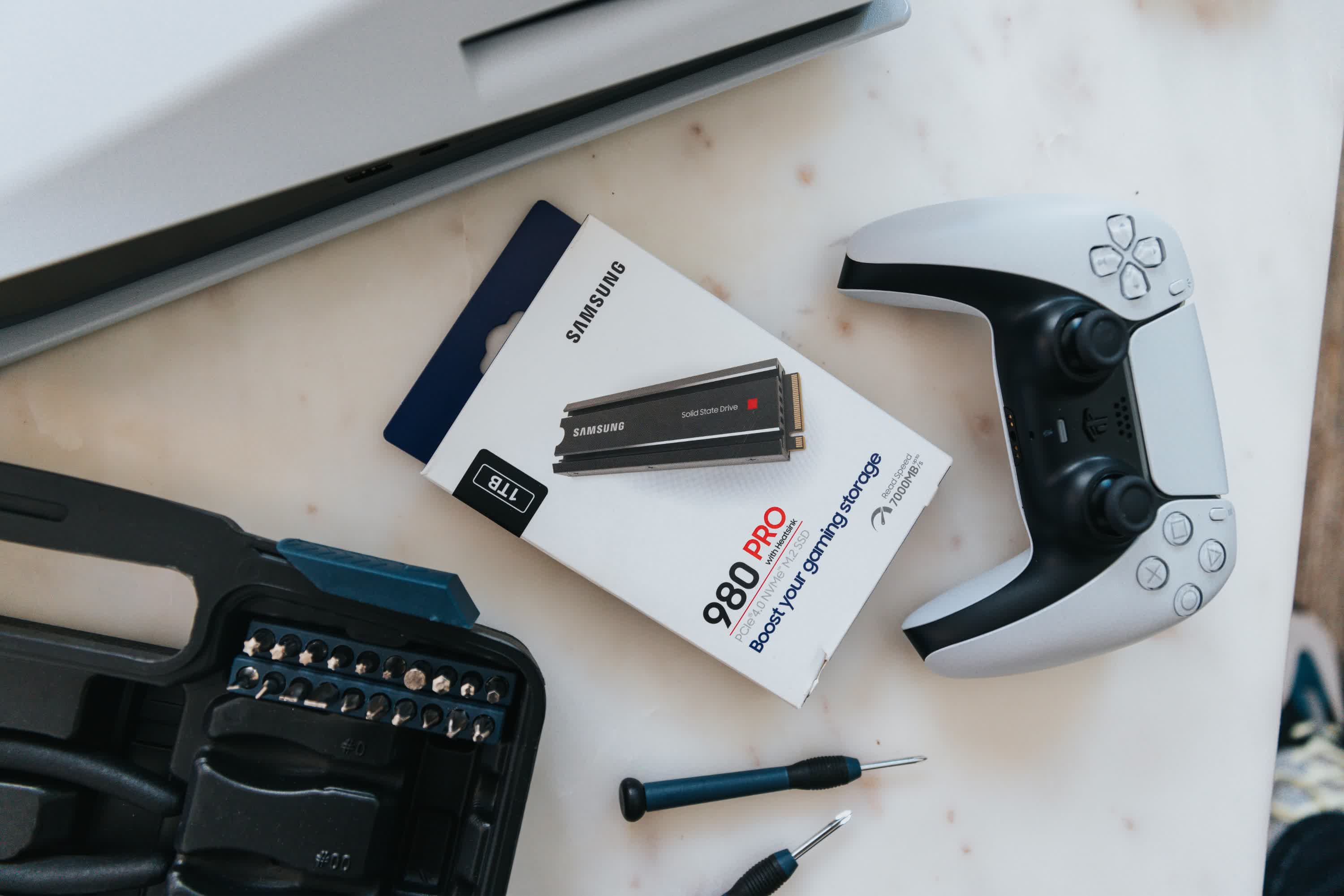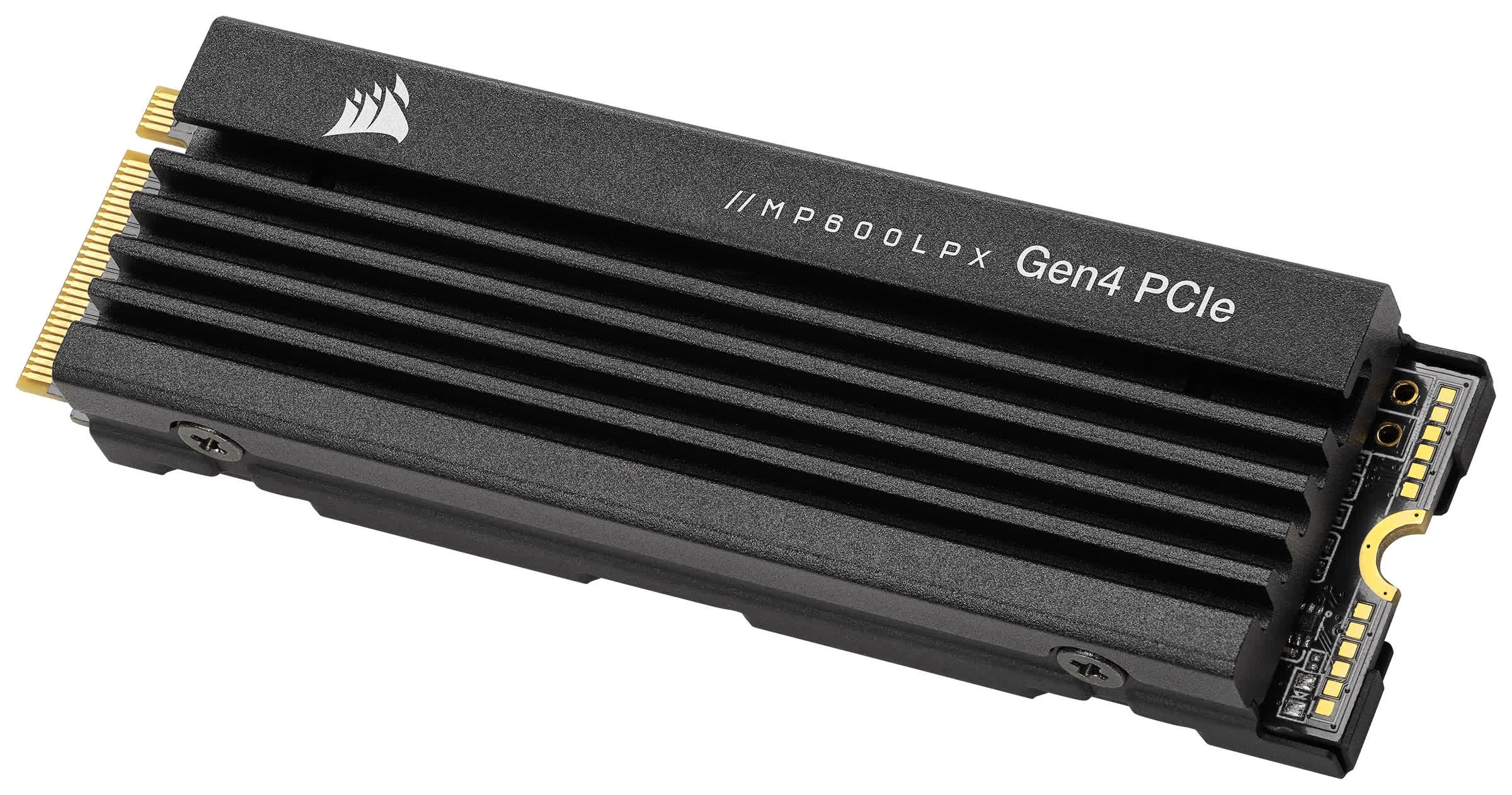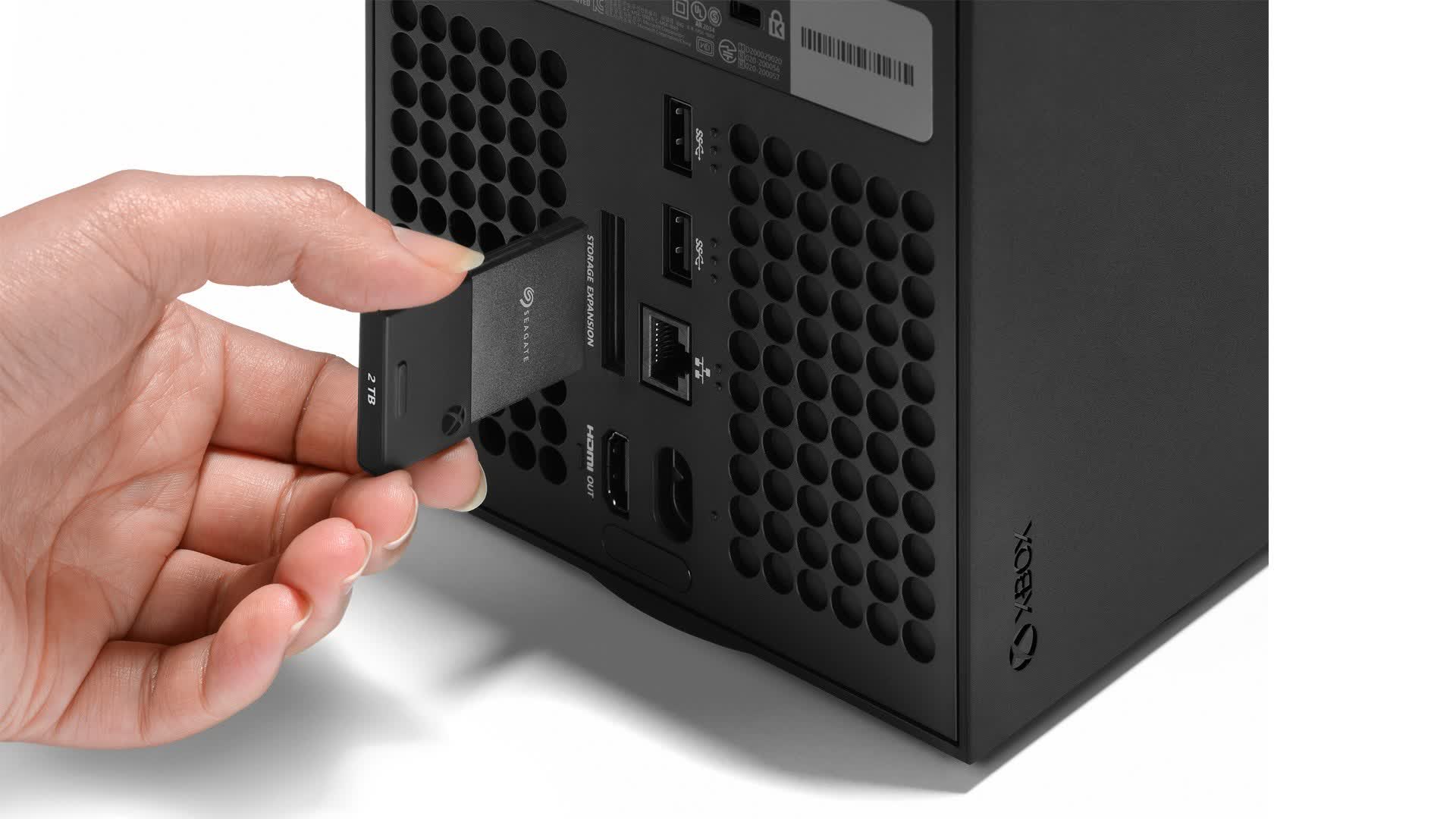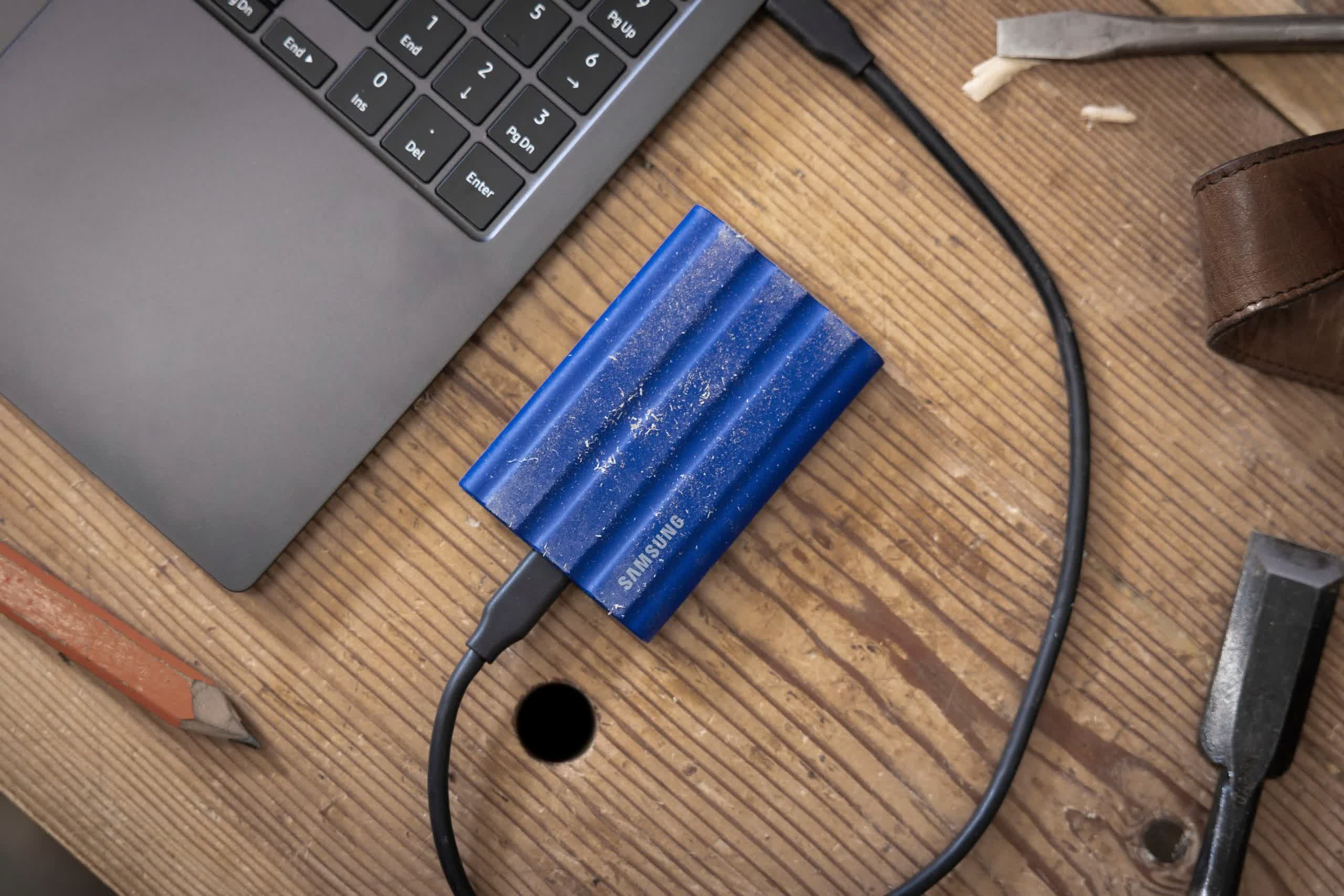Updated: See the latest revision to this buying guide here.
Storage requirements for AAA games continue to grow each year. For PC gamers, this may not pose a significant challenge, as fast storage has become increasingly affordable over the past few years. However, for those who play on current-gen consoles, namely the PlayStation 5 and Xbox Series X/S, the situation is a bit more complicated.
The Xbox Series X and Series S both offer a model with a 1TB SSD, of which approximately 800GB is usable for games and apps. The Series S also has a 512GB version, of which 364GB is accessible to the user. Beyond this, both consoles only support running current-gen games from official expansion cards produced by Seagate or WD. Nevertheless, they are capable of playing previous-gen Xbox One games from any USB 3.0 drive and can also transfer current-gen games to and from such drives.

The PlayStation 5 comes with an 825GB SSD, out of which 667GB is reserved for games and apps. In terms of upgradability, it offers slightly more flexibility than the Xbox consoles due to its internal M.2 slot. However, there are still many constraints. Some drives are officially endorsed as PS5-compatible, while others are promoted as such by their respective manufacturers. Similar to the Xbox, the PS5 can play previous-gen games from a USB drive or use the drive for storing current-gen titles.
The PS5 does not accommodate SATA drives, even those with an M.2 form factor. Moreover, it requires that the drive supports PCIe 4.0 speeds and four PCIe lanes – the officially recommended sequential read speed stands at 5,500MB/s. Additionally, the console lacks support for host-memory buffer (HMB). As a result, SSDs without dedicated DRAM may experience longer game load times and a reduced lifespan.
The drive's heatsink dimensions are also strictly limited: up to 25mm wide (a mere 3mm more than the drive itself), up to 2.45mm tall beneath the drive, and up to 8mm tall above it. If you have a compatible drive but an unsuitable heatsink, you can purchase a generic, compatible heatsink for as little as $9.
Whether you're seeking a drive for current-gen Xbox or PlayStation 5 games or an external drive for legacy titles, this guide has got you covered.
Best PlayStation 5 SSDs
Corsair MP600 Pro LPX or WD Black SN850X

Since you can only add one M.2 drive to the PlayStation 5, you shouldn't try too hard to save money, and should get at least a 2TB drive. Such drives not only offer the best price per GB at the moment, but also the best performance thanks to NAND chips that fully utilize the controller. At this capacity, we believe the Corsair MP600 Pro LPX offers the best combination of price, performance and brand reliability.
The Corsair drive uses the same Micron 176-layer TLC flash and Phison E18 controller as the Seagate FireCuda 530. For a cloud-backed game library, features like Seagate's data recovery services don't justify the higher price. If you find the FireCuda for the same price, go for it.
Another alternative that's usually closer in price is the WD Black SN850X, with better efficiency and marginally faster game load times. It doesn't offer the same sustained writing speed, but the most demanding task we can imagine it undergo inside a PlayStation is copying about 600GB of games from the console's default drive, which will be done in minutes. When copying more than that through a USB 3.1 (or "3.2 gen 2") port, the drive won't be the bottleneck.
In case you were wondering, the SN850P is basically the same drive, with a special heatsink design that allows it to display a bigger PlayStation logo, for more money. On the other hand, the similarly priced and performing SK Hynix P41 and Samsung 990 Pro don't even come with a heatsink.
Xbox Storage Expansion Cards
Seagate Expansion Card or WD Black C50

Both the WD Black C50 and the Seagate storage expansion card are designed to do the exact same things.
The main difference is that Seagate already offers a 2TB version, while the C50 is only available at 1TB and 512GB. All capacity options cost almost the same per GB, so you don't have a wrong option.
If you run out of space, you can simply buy another card.

Xbox storage expansion cards are considerably more expensive than M.2 drives per GB, but much easier to install, making the Xbox line in general look like the kid-friendly option, and the PlayStation 5 like the console for power users.
Best External Drive
Crucial X9 Pro Portable SSD

Xbox One and PlayStation 4 games were designed to run off a spinning disk, but can still enjoy the faster load times of an SSD. The Crucial X9 Pro stands above the crowd thanks to its dedicated DRAM, especially when the drive houses hundreds of GBs. When connected to the PlayStation 5's USB-C port, it can also transfer games from other drives at 1050MB/s. Unlike its predecessor, the X8 Pro, the X9 Pro rarely drops below this speed.
For Xbox users, connecting the Crucial X9 Pro requires a USB-C to USB-A adapter. While transfer speeds are limited to 400MB/s in this setup, game load times remain virtually indistinguishable from those on the PlayStation. The X9 Pro is also built for durability, featuring two-meter drop resistance and an IP55 rating for water and dust protection – more than adequate for a drive that is unlikely to move frequently.
A good alternative is the Samsung T7 Shield, usually available for a similar price per GB. It doesn't have DRAM, but it does have a USB-A connector. It's just as fast as the Crucial drive for data transfers and it's also rated for three-meter drops, IP65 water and dust resistance.

If you're looking to download a huge library of previous-gen AAA titles onto a single drive on the cheap, the Western Digital My Book series (offering several TBs of storage) still offers good value. However, it does have a significant drawback when used with an SSD, as its transfer speeds max out at around 175MB/s, creating a noticeable bottleneck.
For those willing to sacrifice even more load-time performance in favor of a compact drive that doesn't require an external power source, the WD Passport series is a reasonable option. However, data transfer speeds are limited to just 130MB/s, which is slower than other options but still sufficient for legacy game storage.

